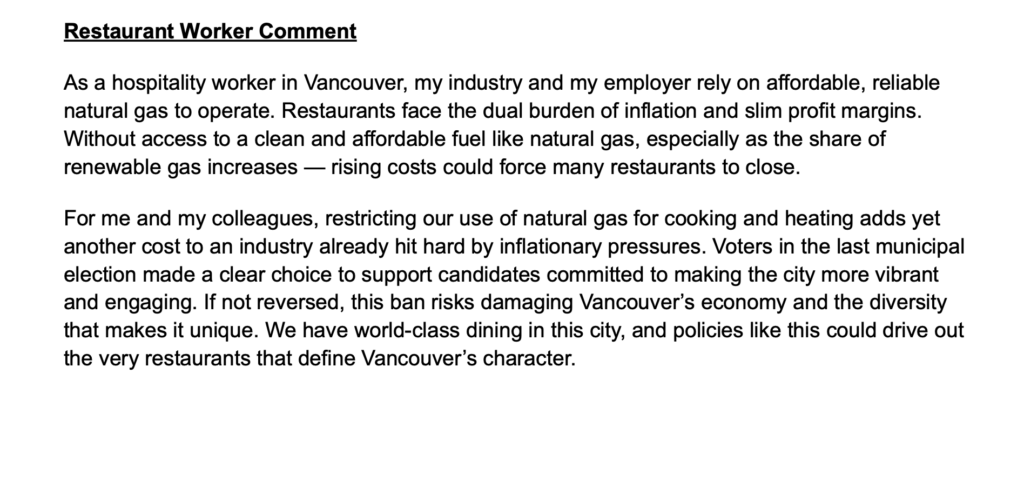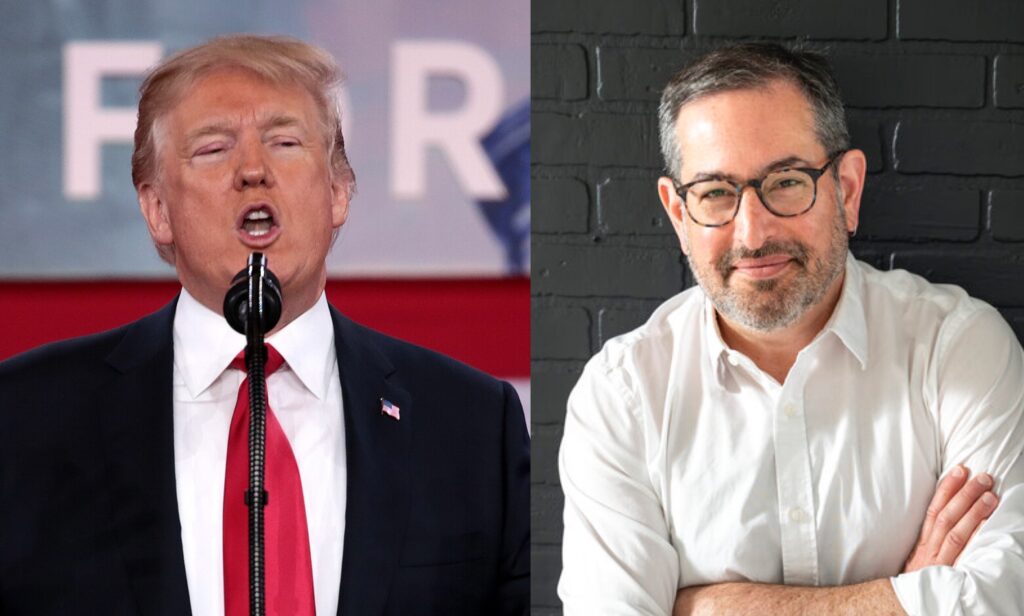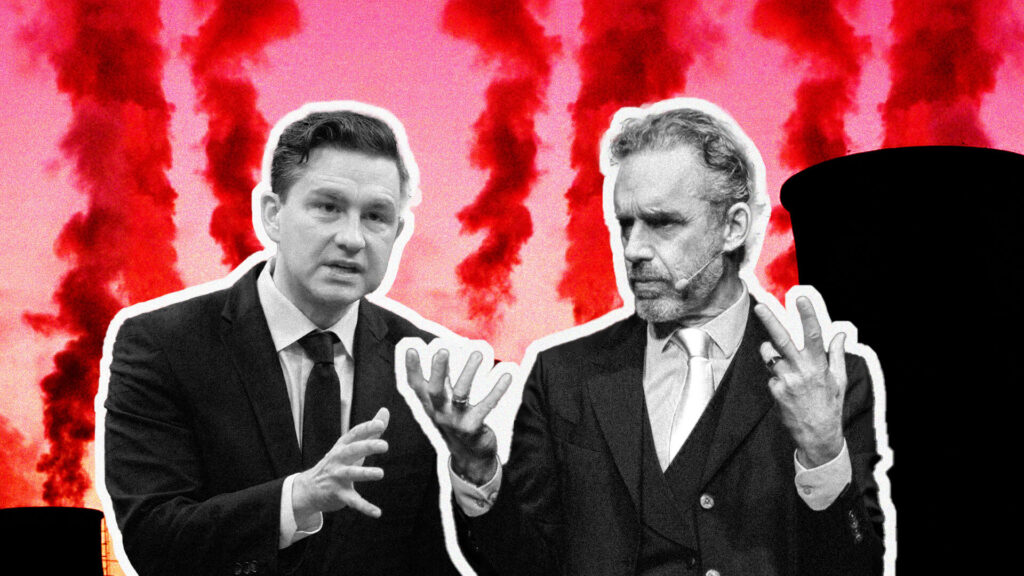In the lead-up to a vote from Vancouver city council this week about whether to reinstate a ban on natural gas heating in new homes, an industry group called Resource Works that has ties to some of the country’s biggest gas producers sent out an urgent request to its email list.
“Action needed,” the subject line read. Attributed to Barry Penner, a former B.C. environment minister, the email contained “a simple guide” for how to influence the vote. It included a document several pages long with pre-written comments that people could submit to the Mayor and City Council. “We strongly suggest customizing it,” Penner stated.
The document contained sample identities for people to use in their submissions, including “small business operator,” “hospitality worker” and “restaurant owner.”
Despite the ban targeting homes and not businesses such as restaurants, one pre-written comment states that “I rely on affordable, reliable natural gas to keep my business running.”
Vancouver council ultimately voted to reinstate the ban on natural gas heating in new homes, with city staff having concluded that restricting the fossil fuel would help achieve the city’s 2030 climate targets without impacting housing or cost of living affordability.
But advocates for the ban say that the Resource Works email is evidence of a climate obstruction tactic deployed with growing frequency in the policy debate over building electrification — industry groups trying to create the impression of local community support unaffiliated with the fossil fuel industry.
“They’re trying to make themselves sound like they’re a grassroots campaign when we know that they’re anything but that,” Sunil Singal, Canadian SAFE cities campaigner with the environmental non-profit Stand.earth, told DeSmog.
“As a Canadian public interest research group, we address matters that affect the public,” Stewart Muir, the founder and CEO of Resource Works, wrote in an email in response to questions from DeSmog about the public comments template. “We will continue to bring understanding to this issue.”
“Our newsletter is free of charge and we welcome everyone to sign up,” he added.
Industry Intervention
More than 140 people showed up to speak this week as Vancouver city council debated whether to allow gas heating in new homes or ban it in favor of less polluting alternatives such as electric heat-pumps.
The Resource Works email attempted to make it as easy as possible for speakers supporting gas to appear, giving links to the city council website and providing screenshots directing them how to fill out forms correctly.
It also urged people to submit written messages. “We have prepared a handful of sample comments to make this process easier (suitable for a range of people, including workers, business owners, and residents),” the email read.
When submitted to city council, there would be no indication that the comments were written by Resource Works, which regularly hosts industry conferences featuring the likes of the Canadian Association of Petroleum Producers and the pipeline companies Enbridge and TC Energy.

Resource Works was reportedly given seed funding in 2014 by a provincial trade association known as the Business Council of British Columbia, whose members in the past have included Shell Canada, Imperial Oil, Chevron and Conoco Phillips.
“Banning natural gas limits its infrastructure, eventually making it unviable for cooking in restaurants,” reads one sample comment pre-written by Resource Works under the category of “restaurant owner.” It adds that “many international cuisines require natural gas stove tops, and this ban would make preparing certain foods costly or even impossible.”
“It’s pure misinformation,” Singal said. “This policy only impacts new residential buildings, it doesn’t impact restaurants.”
The industry group expressed disappointment with the vote, with Muir writing in an email to DeSmog that “the decision will make it more difficult, and perhaps impossible, to economically develop buildings that balance environmental performance with reliability cost.”
Far from harming the city, the ban will remove a fuel that leaks harmful pollutants into people’s homes and help Vancouver transition to cleaner forms of energy, argued Melissa Lem, president of the Canadian Association of Physicians for the Environment.
Luckily, she added, city policymakers weren’t swayed by the gas industry’s tactics.
“The fossil fuel industry has been directly intervening to influence policy decisions for decades, and this week’s Vancouver City Council vote on natural gas in buildings is no exception,” she said.
Subscribe to our newsletter
Stay up to date with DeSmog news and alerts







